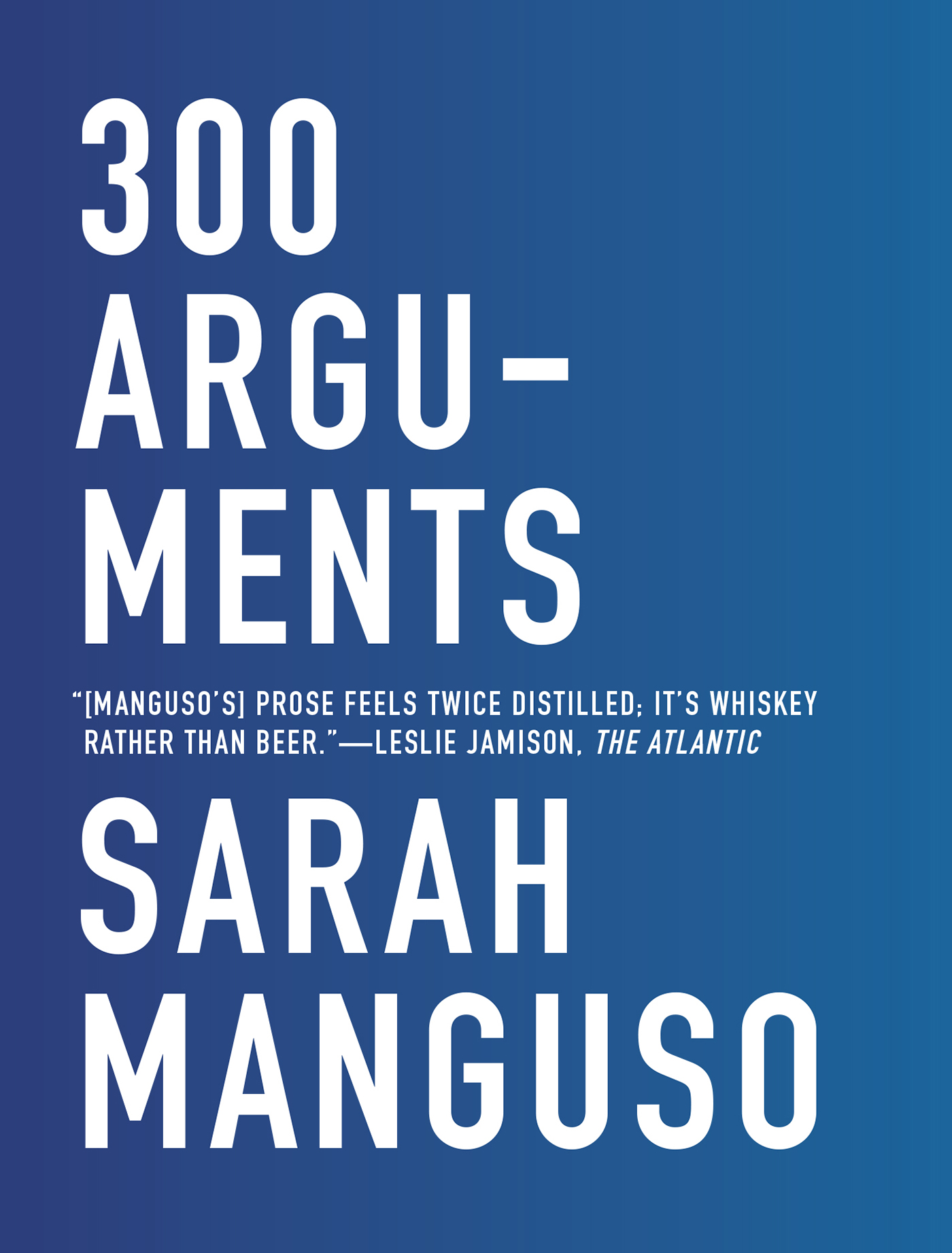Interview: Sarah Manguso
 Midwestern Gothic staffer Meghan Chou talked with author Sarah Manguso about her book 300 Arguments, indulging a writing habit, finishing pieces, and more.
Midwestern Gothic staffer Meghan Chou talked with author Sarah Manguso about her book 300 Arguments, indulging a writing habit, finishing pieces, and more.
**
Meghan Chou: What’s your connection to the Midwest?
Sarah Manguso: I went to the Iowa Writers’ Workshop in the nineties — my first westward traversal of the Mississippi!
MC: 300 Arguments reads like essays constructed in the form of poems with each line a parable, life lesson, or provoking thought. How did you develop this genre-blurring format?
SM: After working relatively fruitlessly on a different book, I found myself turning away from it in order to write very short pieces of prose — very short, but complete in themselves. They provided an antidote to the frustrating, enduring incompleteness of the other book, and they eventually became a different book.

MC: A review on NPR called 300 Arguments a “poem of quarrels,” where each line seems to fight the line before and after in an existential battle. What reaction did you hope to provoke in your readers? Did you want to start an internal “quarrel?”
SM: My definition of the word argument isn’t limited to quarrel but includes a more varied grab-bag drawn from the word’s archaic meanings: subject, theme, sign, mark, token, proof, hint, plot, declaration, evidence, burden, complaint, accusation, denouncement, betrayal. I wasn’t interested in either starting or avoiding an internal quarrel. I just wanted to finish something. Or 300 somethings.
MC: You once said to “think of [300 Arguments] as a short book composed entirely of what I hoped would be a long book’s quotable passages.” Why did you want to include only the most memorable lines?
SM: I didn’t start out wanting anything, really — I was just indulging a habit that eventually became a book. That argument you quote above was written relatively late in the project, after it was nearly done.
MC: Various authors have equated deleting lines and phrases to “kill[ing] your darlings.” For 300 Arguments, what was your editing process in order to build such a condensed book?
SM: I’ve seen this line attributed to various folks, but it’s Arthur Quiller-Couch: “If you here require a practical rule of me, I will present you with this: ‘Whenever you feel an impulse to perpetrate a piece of exceptionally fine writing, obey it—whole-heartedly—and delete it before sending your manuscript to press. Murder your darlings.”
AQC instructs us to strike out our prideful flourishes, the artifacts of self-love, the passages in which we’re listening to ourselves write—to leave room for the writing itself.
I don’t think 300 Arguments even has darlings, by that definition—the sections are too short. On the other hand, maybe the entire book is just one darling after another.
MC: Which aphorism argument in 300 Arguments is your favorite?
SM: Every time I’m obliged to read from it I find that my tastes have changed, but I’m usually partial to the shortest ones.
MC: 300 Arguments addresses a wide range of key questions of the human condition from love to death and beyond. Is there a central message or evolution of ideas you want to convey?
SM: No, there is no single, central argument.
MC: What’s next for you?
SM: It’s back to work on the other book — for now, at least.
**
Sarah Manguso is the author of seven books including Ongoingness, The Guardians, and The Two Kinds of Decay. She lives in California.






